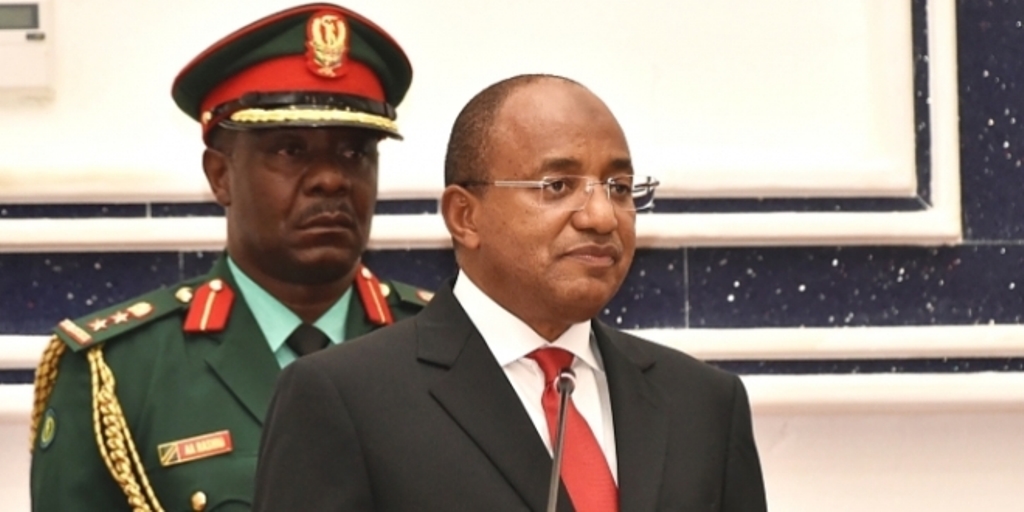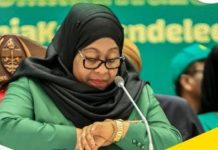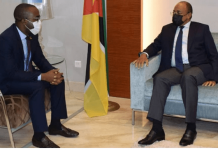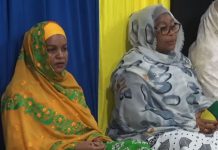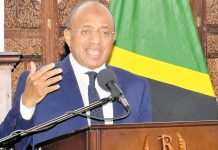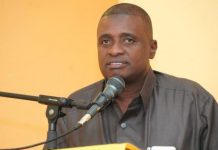AfricaPress-Tanzania: ZANZIBAR President Dr Hussein Mwinyi on Wednesday ordered sweeping reforms in the education system to improve the quality of training and generate competent professionals for the envisaged blue economy.
He decried the deteriorating level of education in the country, saying the educational policy, laws and curriculum are all outdated and need to undergo intensive review.
“We need a modern policy to address our current educational demand; the one we have is outdated; it has many flaws,” President Mwinyi told a meeting he had specifically convened for stakeholders to deliberate on the hitches haunting the learning sector.
He tasked all stakeholders with the responsibility to come up with the best and lasting solutions for the educational problems, warning against any attempt to address the challenges in isolation.
“It’s up to all stakeholders as a team to work together to improve our education…unfortunately, there is a problem of some government officials perceiving themselves as the most competent and capable of producing all the solutions, without involving other stakeholders,” he said.
President Mwinyi conceded that poor infrastructure, lack of teaching tools, inadequate quantity and quality of teachers as well as insufficiency financing were the key impediments in education, promising to invest heavily in addressing them.
“We have to admit the fact that the lasting solution to all these problems is for the government to make education its top expenditure priority,” he said, vowing to stand firm in solving teachers’ welfare related problems.
He directed the ministry of education and vocational training to spearhead, through engagement of all stakeholders, the establishment educational fund to easy financing of educational activities in the country.
The president however condemned unaccountability among teachers, saying: “There is a serious accountability problem among teachers … we have to address it as well.”
Earlier, stakeholders had ample time to air their concerns and likely solutions, with majority blaming the deteriorating education standard on outdated policy and curriculum as well as poor funding, especially poor remuneration to teachers.
Mr Aboubakar Ali, speaking for the private schools, complained about discrimination against the private investors, saying the private educators were not involved in making decisions that have direct impact on their operations.
He also decried a myriad of taxes, which the private schools pay to Tanzania Revenue Authority, Zanzibar Revenue Board, local government authorities and registrar. “We are taxed as if we are in business, but the fact is; we are just offering services,” he said.
Retired Teacher Abdallah Njeketu raised concern over the massive failures by Zanzibaris in form four national examinations but shifted blames to the trainers. “It’s not true that our children are that dumb to warrant this level of failure; they are not properly taught,” he said.
He attacked higher learning institutions in the country, saying they produce half baked professionals. “Some private schools have been using me in recruitment of teachers; but the types of interviewees we receive with university qualification are a shame,” claimed the seasoned teacher.
But, university lecturers defended themselves, saying they too receive substandard materials from the lower level—implying that “garbage in garbage out.”
Mwalimu Nyerere Memorial University, Karume Campus, Principal Dr Rose Mbweta advised the country to invest heavily in mathematics from the lower levels, if the country has to get competent professionals in many fields.
“Mathematics is key to almost all professions that the country demands for the blue economy,” she argued.


